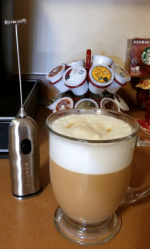srowe
New member
Lately I have had major problems frothing my milk, I use a Goldair milk frother, I thought the machine may have been faulty, so yesterday I brought a new one and still the same result, I have tried 3 different brands of milk and no joy. The milk seems to be seperating after heating and becomes bubbly and airy. I have also notice in the last week that the coffees I have brought from barristers hava been very watery and undrinkable. Are the milk companies watering our milk down or has this overly hot summer in New Zealand effected the cows and the milk they are providing. I have read that milk can be reduced in hot climates, so could the milk companies be watering it down to compensate for the shortfall.

